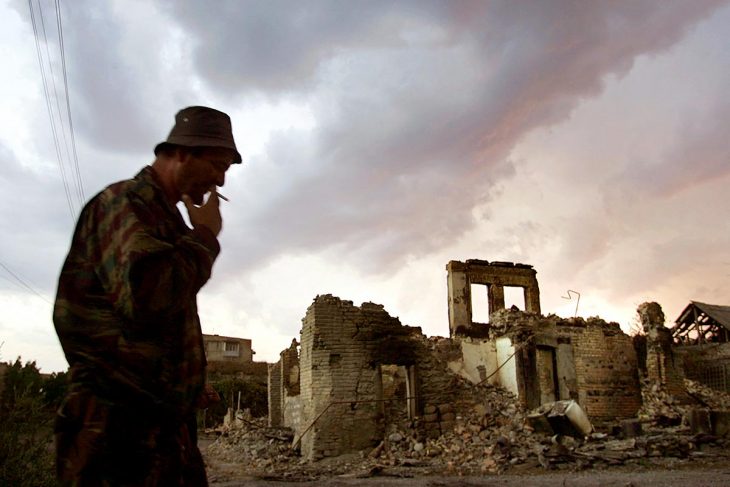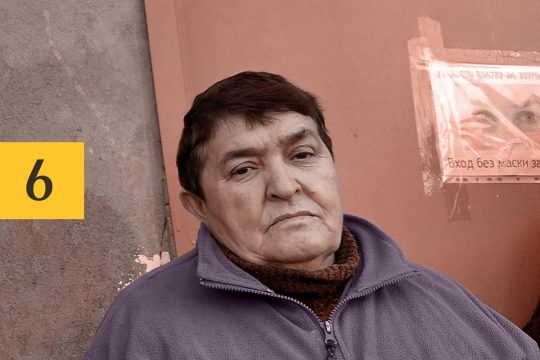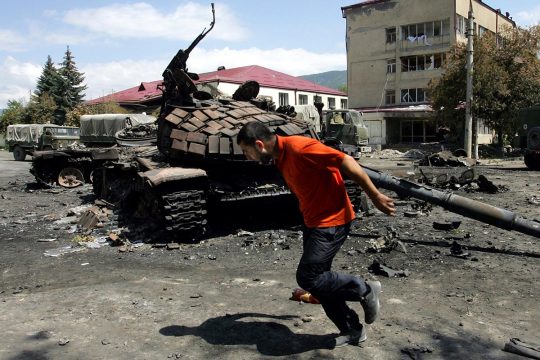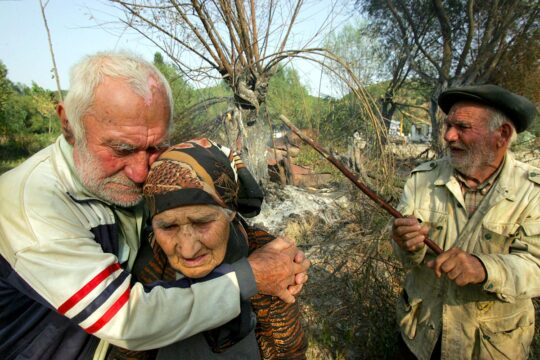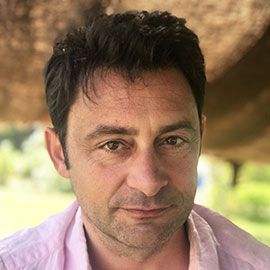Why, after nearly eight years of preliminary examination of the “Georgian situation”, relating to the 2008 war in South Ossetia involving powerful Russia as well as Georgia, did the Prosecutor of the International Criminal Court (ICC) Fatou Bensouda finally decide, at the end of 2015, to open an investigation?
“It’s all about political willingness of the prosecutor,” says Georgian Nika Jeiranashvili of the organization International Justice, who has closely followed the political and judicial process in Tbilissi and The Hague, where he eventually moved. “They started to go more actively after the African Union decided to adopt an exit strategy. That was the trigger point.”
In Georgia, the atmosphere has changed. Saakashvili lost the 2012 elections and power passed into the hands of billionaire Bidzina Ivanishvili, whose fortune is said to be equivalent to almost 50 per cent of the country's GDP. Saakashvili went into exile, his former prime minister and the influential mayor of Tbilissi were imprisoned. Communications became less frequent between the ICC and the Georgian judiciary, which has kept open its own investigations into the 2008 war. But time is passing and it is becoming clear that they will not succeed, officially because access to the territory of South Ossetia remains closed; unofficially because it is feared in Tbilissi that an indictment against Russians or their Ossetian allies would lead to reprisals.
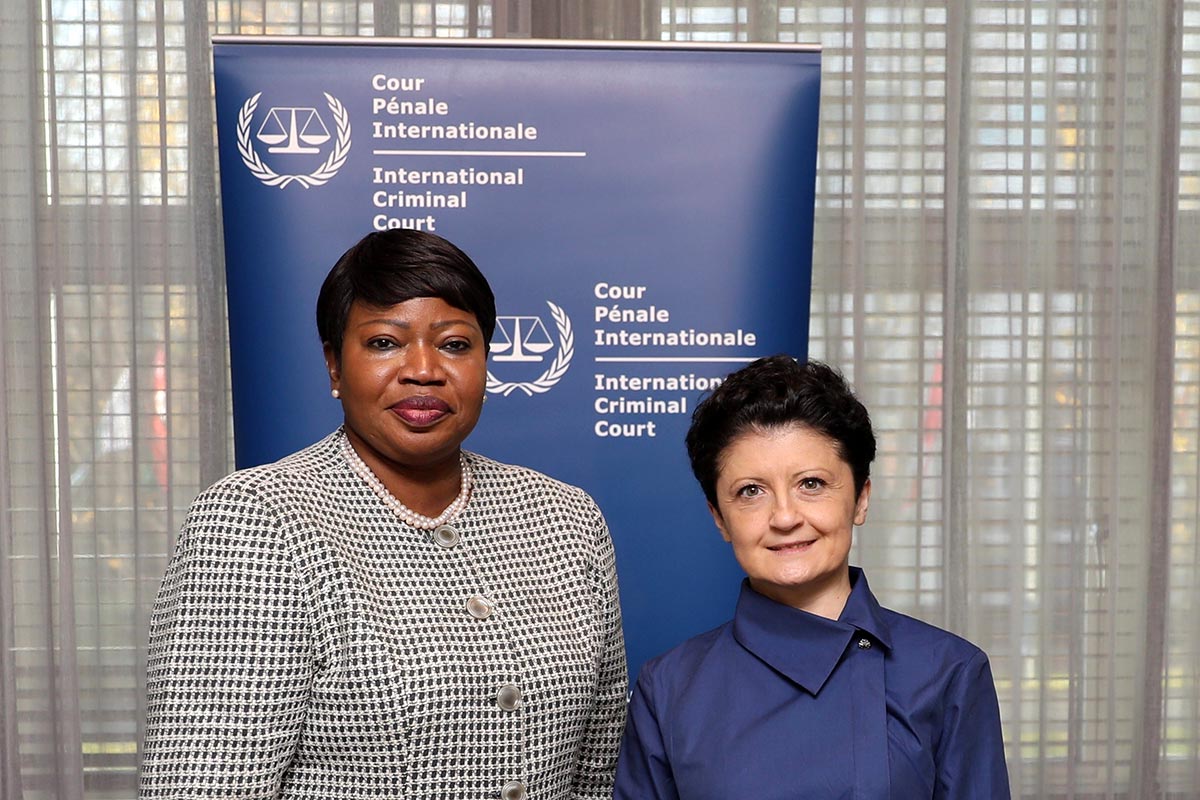
Suspects identified
Justice Minister Thea Tsulukiani noted this in a letter to Bensouda on March 17, 2015. From 2008 to 2014, she summarizes, Georgian investigators questioned more than 7,000 witnesses, ordered 200 forensic examinations, travelled to some 30 crime scenes, examined satellite images when evidence was inaccessible “because of the occupation”. "The existing state of the proceedings gives an opportunity to file charges against a number of individuals allegedly responsible for the war crimes and crimes against humanity,” writes the minister.
She describes recurrent violence on the borders of Abkhazia and South Ossetia, where the Georgian authorities recorded no less than 393 kidnappings of civilians in two years. “It needs to be noted that the persons implicated in the commission of the crimes subject to Georgia's domestic proceedings under the August war criminal case might be directly involved or affiliated with the on-going violence,” she stresses. The probability is high, Tsulukiani continues, that “an advance to the prosecution stage in the given proceedings might have prompted certain backlash for the groups engaged in the violence across the conflict lines”. The minister does not say that investigations have been suspended, but concludes: “The prosecutor intends to resume efforts once the situation is conducive.”
ICC Prosecutor Bensouda relied on this letter to request authorization from ICC judges to open an investigation, which she obtained on January 27, 2016. The opening of a case outside the African continent is presented as a historic first and a strong political act for the ICC. It was used extensively to counter voices accusing it of targeting only Africans. But five years later, despite the sum of judicial communications transmitted during the preliminary examination, the ICC investigation on Georgia has not yet been concluded.
The ICC’s most delayed investigation
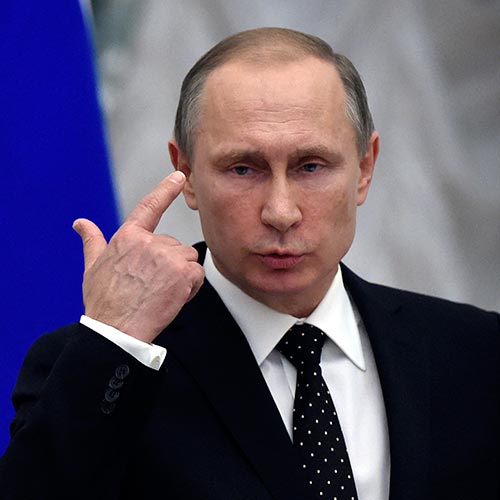
"It’s officially the most delayed investigation of the ICC,” laments Jeiranashvili. The activist paints a damning picture, corroborated by most of the civil society members we met in Georgia: a prosecutor's office that initially understood nothing of the context, even going so far as to maintain for a year that Russia would cooperate - until Putin clarified matters by withdrawing Russia's signature from the Rome Statute. “The ICC also made many mistakes in communication, outreach, and witness protection," says Jeiranashvili. The attitude of the members of the court is perceived as arrogant by the few activists waiting and welcoming the Court in Georgia. "There are many debates, quarrels and exchanges with the prosecutor's office. It's very messy. They just pretend they are following strict rules," according to Jeiranashvili.
The half-dozen organizations that welcomed the arrival of the ICC in Georgia were quickly discouraged by the procedures and culture of secrecy of the institution. Outreach activities cannot be outsourced to local NGOs, so they work pro bono, with documents translated into Georgian by the local ICC office, opened in 2007, whose work is far from convincing in their eyes. Victims were invited to file applications for participation and 5,782 Georgians registered. But they had to do it in a hurry. "We only had one month!" exclaims Nino Jomarjidze of the Association of Young Georgian Lawyers, Gyla. She says awareness among victims was and remains almost non-existent. And even more serious: “The OTP knows we represent victims before the ICC, before the ECHR, but they never asked lawyers to attend meetings with victims to assist them. No psychological support was provided to the victims after the interviews, who received no information about the nature and the advancement of the investigation.”
Nino Tsagareshvili of the Georgian Centre for Human Rights HRIDC makes a similar assessment: “The ICC decision to receive victims’ submissions has no formal rights attached. There is no formal procedure to submit information or evidence for the victims.”
200 potential witnesses preselected
Mariam Jishkariani, president of the NGO RCT Empathy which specializes in the psychosocial treatment of trauma related to torture and war, is more measured. The cupboards of this NGO, founded in 1996, are full of folders bearing the names of victims of the violence which, from Abkhazia to South Ossetia, Chechnya and Nagorno-Karabakh, has bloodied the Caucasus. Some 200 potential witnesses were allegedly pre-selected by ICC investigators, including about 60 processed by RCT Empathy, which is in contact with the ICC’s victim protection section and the prosecutor's office in The Hague. At the end of 2020, investigators asked that the case files prepared by the NGO be brought into conformity with the Istanbul Protocol, a 96-page charter developed by the United Nations to "effectively investigate torture and other cruel, inhuman or degrading treatment or punishment”. But the NGO lacked the resources to carry out this enormous task. “I think the investigators did their best,” says Jishkariani. “I have no evidence that they would not be objective. Now our government said many times that Saakachvili started the war. We were on the ground, we disagree on that. But nobody knows how it could be reflected in the ICC investigation.”
Julia Kharashvili, from the Consent organization supporting displaced women, expects above all for its beneficiaries to get support from the ICC's Trust Fund for Victims (TFV), which announced in late 2020 the opening of an assistance programme. She was the only one to tell us that "the representation of the ICC here has been very active". "They have conducted a number of meetings with victims. Now, because of Covid-19, it has slowed down," she added.
Kaupo Kand, an Estonian diplomat and philosopher who is head of the ICC field office, admits that the outreach meetings held in the IDP camps bring together "on average between five and ten people, mostly women and the elderly”. Kand then told us by Email that despite the pandemic, “in addition to all online activities we had around 17 face-to-face meetings and direct contact with around 150 persons last year”. In December, the virtual press conference organized for the opening of the Fund's programme endowed with 600,000 euros over three years, was "very well covered by all Georgian media outlets," he asserts.
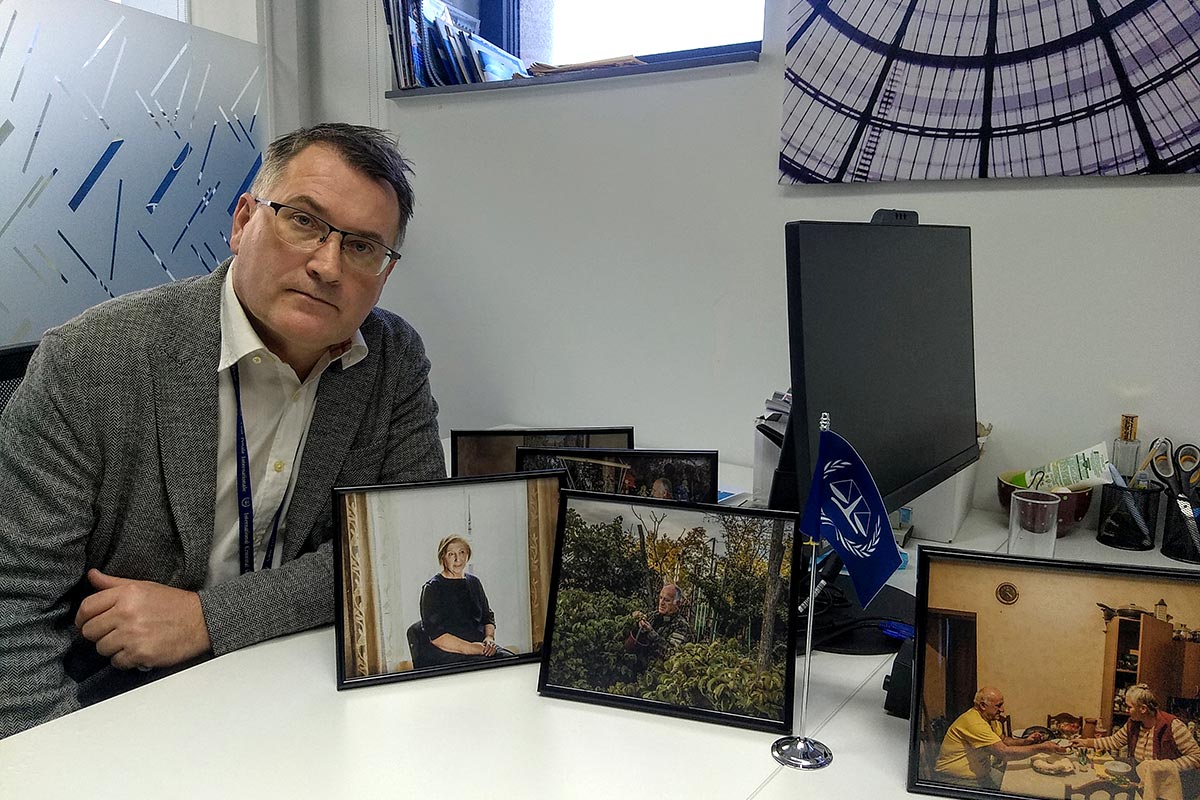
“Providing justice however powerful parties are”
The Fund’s arrival was a “really a good signal” while the investigation was not going any faster, declared deputy justice minister Beka Dzamachvili, whom we met in Tbilissi. “If we don't manage expectations properly, the victims may not cooperate. It’s already more than 12 years after the war, many victims have passed away, time is really running against us and against the victims.”
Asked about the possible outcome of the investigation, the minister evokes the high stakes for the Court: “We hope this case is successful. It's not only a first case out of Africa. It is a test case for the ICC which has here its first case where a big power is engaged. The court should show it is capable of providing justice irrespective of how powerful and what resources the parties have. If that were not to be the case, it would be a problem for a lot of small states who see it as a protection.”
Time is also pressing for Fatou Bensouda, before her departure in June, if she wants to be able to take credit for the results of this investigation. According to the projections submitted by her office to the ICC Assembly of States Parties in December, “the Office is aiming to conclude the investigation phase in the first half of 2021, resulting in either pre-trial activities or the winding up of the investigation". The deadline is approaching. “Today, it is more maintenance work, it is about keeping an eye on witnesses. They simply have no more to do,” observes Jeiranashvili. “We need to link evidence with someone responsible. They have a lot of information but not a lot of options. It would be hard for Fatou Bensouda to say it has not led to anything. It would be devastating.”
While the ICC is far from being at the centre of the national political debate, speculation about the findings of the investigation agitated last fall's campaign for parliamentary elections, which were narrowly and controversially won by the "Georgian Dream" party of billionnaire Ivanishi. Rumours that the government had "sold them out” came to the ears of high-ranking Georgian officials who were in command in 2008. General Mamuka Kurashvili, former Chief of Staff for Peacekeeping Operations, spoke on television, saying he was ready to bring the truth to The Hague and give his life for his country. “In Georgia these soldiers are seen as heroes,” Jeiranashvili stresses. “It’s a unique situation for the ICC to prosecute a case where two states are at war. It took time for the OTP. If some Georgian is finally in the box, that would look very bad, that would lead to internal conflict, and the last thing the ICC wants is to create a new conflict. They did a lot of mistakes, but at least creating a conflict is something they have not done yet.”
Fear of a “balanced” position
In particular, Georgians could be accused of using illegal cluster bombs and for an attack on Russian peacekeepers, which could be qualified as war crimes. A former leader of the Rose Revolution, Guiorgui Bokeria, was Deputy Minister of Foreign Affairs during the war. “Immediately afterwards," he says, "we provided the ICC with a lot of information about ethnic cleansing, when the Russians exercised total control, and about their lackeys, the Ossetian leaders who burned villages.” And if Georgians were targeted by the ICC? “It would bring further skepticism against this kind of organization. It would be a huge blow in the eyes of Georgian public.” His greatest fear is that the ICC, "like the European Union", be tempted by a "balanced" position targeting at the same time Georgians, Ossetians and/or Russians. This would show, according to Bokeria, "that the power of a powerful state has won out”.
“Credible information suggests that Russian soldiers either participated in, or were passive in the face of crimes committed by South Ossetian forces,” says the Prosecutor in her request to open an investigation. Another possibility for the ICC would consist in not targeting either the Georgians or the Russians, in order to make the South Ossetians alone responsible for the forced population transfers, associated with looting and torture. The risk here is that, due to lack of access to the territory, "the judges will end up saying that the evidence is insufficient", says Jeiranashvili.
Some did not hide the facts at the time, such as this counterintelligence officer within the South Ossetian forces, who told Human Rights Watch on August 13, 2008, that: “We burned these houses. We want to make sure that they [the Georgians] can’t come back, because if they do come back, this will be a Georgian enclave again and this should not happen.” There was also the President of the South Ossetian Parliament, Znaur Gassiev, who told a journalist from Komsomolskaya Pravda, Dmitri Stechin, in a report published on 22 August 2008: "We did a disgusting thing, I know. But the Georgians will not come here again - we burned all the houses in the enclaves. There was no other way to stop this war and cut the cord.”
"It is obvious," writes the Russian journalist concluding his report, "that friendship with South Ossetia is costly for Russia. As a 'prize' for having won the Caucasus war, we have acquired an ally that has no economy, that is half destroyed, that is populated by people irremediably traumatized by the war. The world subtly changed in those weeks [of war in Ossetia] and will never be the same again. It suddenly became clear that the West is still not ready to engage in a headlong battle, even for its most loyal lackeys.”
This seems to be another “Russian lesson”, and we will see how the ICC takes it.


